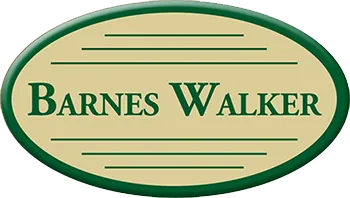- posted: Oct. 01, 2017
- Legal News & Articles
October 2, 2017
Scam Artists Target Veteran's Pension Benefit
By M. Brandon Robinson, Esq.1
Unscrupulous individuals claiming to be “Veterans Financial Advocates” are targeting American Veterans with a new dastardly scam. These so-called "Veterans Financial Advocates" will claim that they can assist the Veteran in qualifying for the Department of Veterans Affairs Pension Benefit for low-income Veterans by taking actions that closely resemble legitimate Medicaid planning techniques. Examples of such techniques include the establishment of a qualified income trust, the drafting of a personal services contract, and the purchase a qualified annuity. However, while these techniques may well work to qualify an individual for Medicaid, they DO NOT WORK to qualify an individual for benefits from the United States Department of Veterans Affairs. In fact, if a Veteran is induced to implement the plans espoused by these so-called advocates, they may actually lose eligibility for certain V.A. benefits, may become disqualified for Medicaid for a period of time, and may be cut off from their money for a significant amount of time.
What is the V.A. Pension Benefit?
The V.A. Pension Benefit is meant to supplement the income of very-low-income Veterans who served during a time of war. To qualify for the benefit, a Veteran must have been discharged from the armed forces under other than dishonorable conditions, must have served for a period of no less than 90 days with at least one day of war time service, must be permanently and totally disabled or age 65 or older, and the Veteran's countable family income is below a yearly limit set by law. For 2017, the countable family income limit for a Veteran with no dependents is $12,907. The limit for a Veteran with a spouse or a child is $16,902. If the Veteran is eligible for the Pension Benefit, the V.A. will pay the Veteran the difference between their actual annual income and the annual limit listed above in twelve monthly installments. Additionally, eligibility for the V.A. Pension Benefit will also qualify the Veteran to receive Aid and Attendance Benefits, which is an additional sum of money paid to the Veteran should the Veteran require the aid of another person in order to perform personal functions required in everyday living, such as bathing, feeding, dressing, etc.
What is a real "Veteran's Asset Protection Trust"
A true Veteran's Asset Protection Trust is, generally speaking, an Intentionally Defective Grantor Trust established to hold title to the Veteran’s primary residence.
What purpose does a Veteran's Asset Protection Trust serve?
The main asset of a majority of Veterans is their primary residence. As long as the Veteran maintains the home, it is considered a "non-countable resource" and is not considered a part of the Veteran's net worth for V.A. eligibility purposes. However, should the Veteran be receiving the V.A. Pension Benefit and sell their primary residence, then the proceeds of the sale would be considered part of the Veterans net worth, and would disqualify the Veteran from receiving any further Pension Benefit payments until the proceeds of the sale were "spent down." By establishing a Veteran's Asset Protection Trust to hold title to the real property, if and when the property is sold, the Veteran will not be disqualified from receiving V.A. Pension Benefit payments. Additionally, the proceeds of the sale held by the Veteran's Asset Protection Trust will not be subject to estate recovery by Medicaid. Should the real property not be sold, the trust assets will receive a step up in basis for income tax purposes upon the death of the Veteran. The Veteran's Asset Protection Trust may also take title to any other assets owned by the Veteran, with the understanding by the Veteran that any transfer of such assets into this type of trust will be a disqualifying transfer of an asset for Medicaid purposes for a period of 5 years, as that is the look back period from the date that a Medicaid application is submitted.
How do I know if a particular attorney or "advocate" is legitimate?
To determine if a particular attorney or "Veterans Advocate" is legitimate, accredited, and approved to practice before the United States Department of Veterans Affairs, perform an online search with the V.A. Office of General Counsel to find Accredited Attorneys, Claims Agents, and Veterans Service Organization Representatives at https://www.va.gov/ogc/apps/accreditation/index.asp, or Email your inquiry to [email protected].
This summary is for illustration purposes only, and should not be considered legal advice. The law, and the interpretation of the law, can change at any time. Before you act on anything contained in this article, please seek a qualified, accredited V.A. attorney. This summary is provided as a courtesy of Barnes Walker, Goethe, Perron, & Shea, PLLC, with offices located in Bradenton, Sarasota, Holmes Beach, and Parrish, Florida.
1 M. Brandon Robinson, Esq., an Associate Attorney with Barnes Walker, Goethe, Perron, & Shea, PLLC, is a V.A. Accredited Attorney, a member of the Florida Bar, and is licensed to practice before the United States District Court for the Middle District of Florida. Mr. Robinson is combat veteran of the United States Marine Corps who served honorably as an Ammunition Specialist Technician during Operation Iraqi Freedom. Mr. Robinson's legal practice is focused in the areas of wills, trusts, estate planning, probate, guardianship, and Veteran's benefits.

